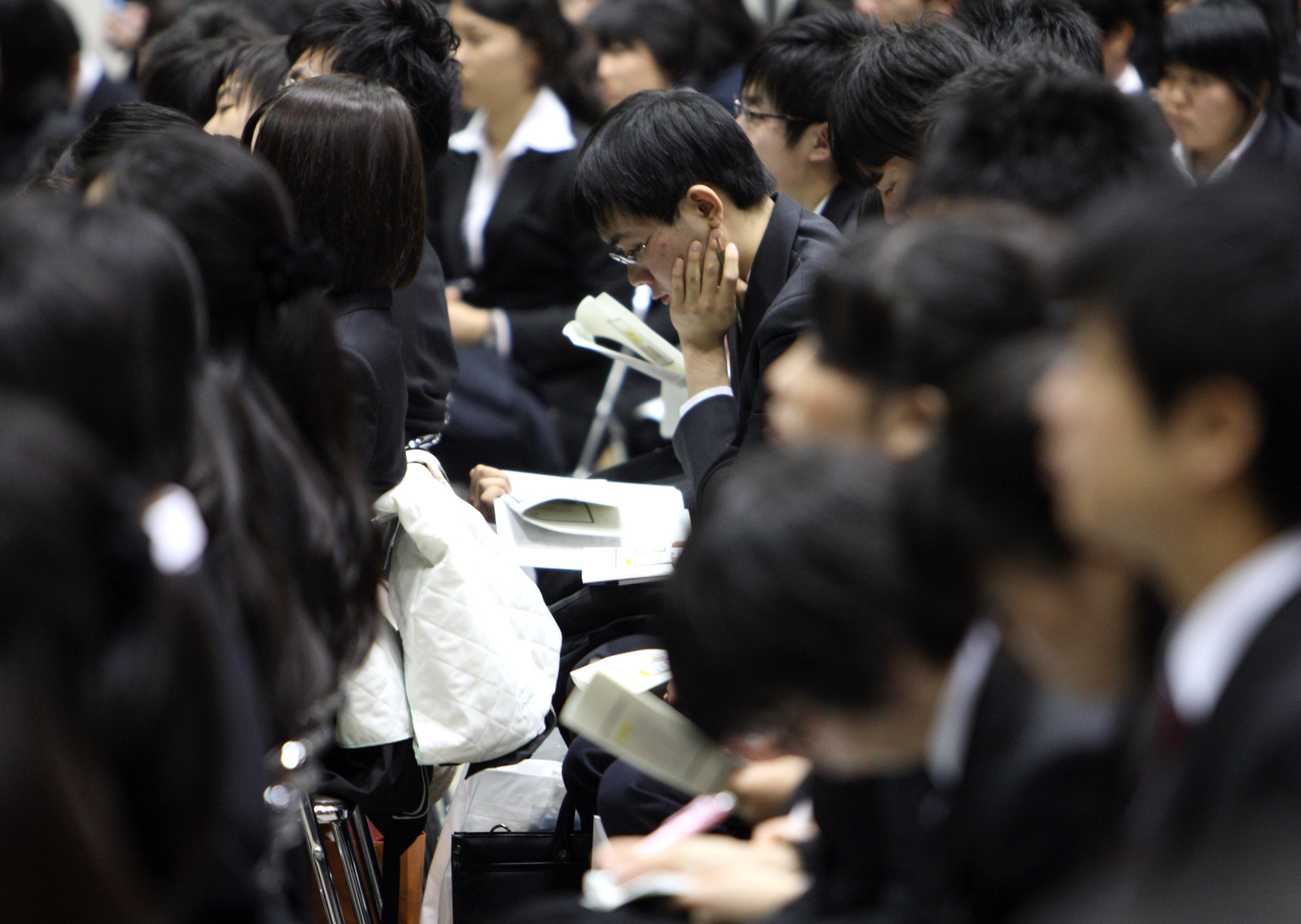What's a university degree worth in Japan? About ¥2.9 million a year based on starting salaries for new graduates, and the figure has barely budged over the past decade.
That's about half what their counterparts start out on in the U.S., where pay for new graduates has climbed 8 percent since 2007, according to the National Association of Colleges and Employers.
When graduates opened their first monthly paychecks earlier this year, on average they received ¥213,000, before tax, according to a survey by Keidanren. An annual bonus will likely take earnings for the year to about ¥2.9 million, according to labor ministry data for 2016, but total monthly pay will still be lower than last year.
And spending a few more years in college doesn't add much either, with the average salary and bonus for someone with a master's degree at ¥3.1 million.
With new graduates starting at such a low base and little prospect of strong pay rises coming anytime soon, this points toward tepid growth in domestic consumption and an economy that remains reliant on exports for a large portion of its expansion. This situation reflects the overall stagnation in wages, which rose only 1 percent in the decade through 2016.
But while wages are low, many large companies do provide benefits such as transport allowances, subsidies for workers with children, cheap housing in corporate dormitories and discount lunches.
That adds another ¥110,000 a month or so to the total compensation value for the average worker, according to a different Keidanren survey in 2015.



















With your current subscription plan you can comment on stories. However, before writing your first comment, please create a display name in the Profile section of your subscriber account page.